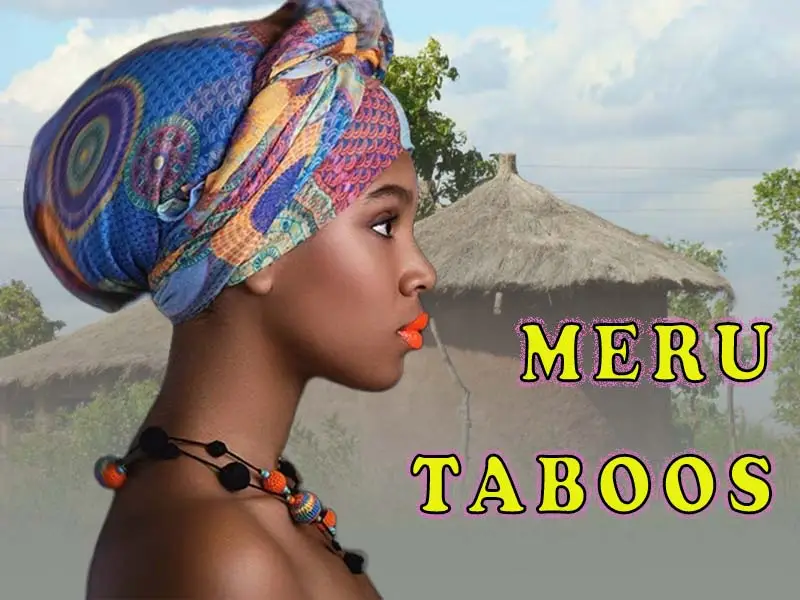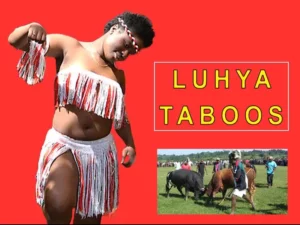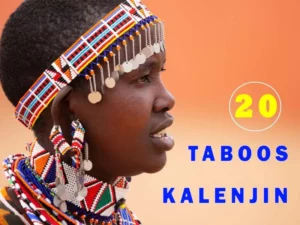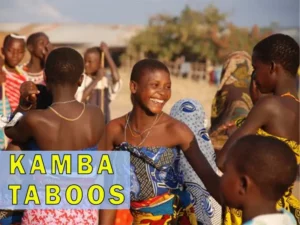What are Meru people known for? Ameru people in the eastern parts of Kenya are famous for among other reasons miraa and strict cultural beliefs. These include non-negotiable traditions and rituals in the long list of taboos in Meru community.
Diversity runs deep in all the 9 sub-tribes making the Meru ethnic group. These include Chuka, Imenti, Igembe, Tigania, Mitine, Igoji, Muthambi, Mwimbi, and Tharaka.
Top 20 Taboos in Meru community
Njuri Ncheke council incorruptible elders lie supreme in all community affairs. Their social rank is crucial in enforcing culture at its best.
What are the beliefs of Meru community? The traditional Meru society is largely monotheistic on the supreme god called Arega kuthera or Murungu.
At heart are these taboos that set Ameru people apart from the rest.
1. Mentioning the name or touching the corpse equalled contamination
Anyone who showed signs of death in the Ameru community was driven to the “hut of death” situated deep in the forest.
In the event death occurred within the house, the structure was destroyed and the body was dragged with a rope for disposal in the forest.
No one was allowed to touch the corpse or even mention their name for fear of contamination.
Following the disposal came the Kwenja Rukuu ritual in which all family members were shaved by the one who disposed of the body. In turn, he was shaved by one of the family members.
2. Taboo to sympathize with the family of the deceased
Death is painful but the Ameru worked against the odds to lessen the resulting pain.
Upon disposing of the deceased in the bush, members of the community were prohibited from sympathizing with family members as far as the loss of a loved one is concerned.
3. It is taboo for Meru men to eat arrowroot leaves
The Meru culture prohibited men from consuming arrowroot leaves otherwise called Rûgurû in the local language.
The delicacy was only reserved for young boys, girls, and women.
Most of these taboos are fading away for a lack of traditional religious leaders.
As a result, postmodernism is wiping out culture and installing Christianity.
The list of taboos in Meru community is highly interesting because of its unceasing traditions, religious customs, and rituals.
I am a digital creative cum graduate Mechatronics Engineer from Dedan Kimathi University; with over a decade of experience in computer applications, networking, website design, graphic design, blogging, CAD, and robotics. Besides, I coach on-demand digital skills at Rejnac Masterclass.






